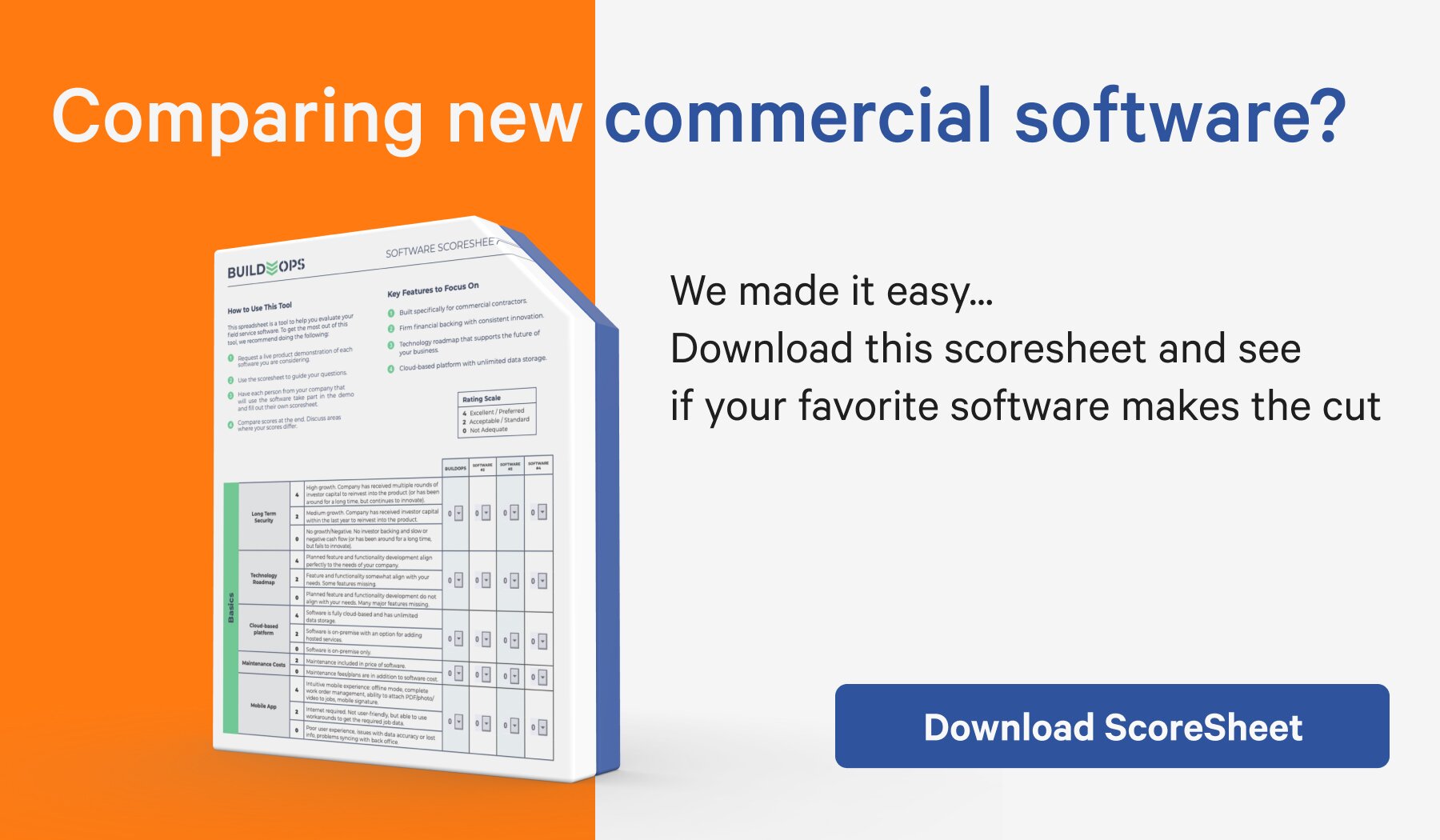Customer Relationship Management (CRM) for builders refers to specialized software designed to help construction companies manage interactions with current and potential clients. This tool is tailored to the unique needs of the building industry, including tracking project progress, managing sales leads, and maintaining customer satisfaction. CRM systems for builders centralize vital information, facilitating smoother project operations.
The CRMs enable builders to store critical data such as client details, project timelines, and communication logs. By offering an organized database, they help construction firms make informed decisions promptly. Efficient CRM systems enable streamlined client interactions and enhanced project management, ensuring tasks are completed within set timelines and quality standards.
Moreover, CRMs for builders often incorporate features like project management tools, customer support systems, and real-time analytics. These functionalities allow builders to monitor project statuses, identify potential issues early, and enhance client relationships. By providing comprehensive solutions tailored to the construction industry, CRMs help builders achieve higher efficiency and client satisfaction.
The construction industry is ever-evolving, and managing client relationships is more crucial than ever. Customer Relationship Management (CRM) systems for builders emerge as indispensable tools in this context. They offer tailored solutions that address the specific needs of construction firms, enabling smoother project execution and better customer interactions.
Today’s builders face numerous challenges, from tight project schedules to client retention. Effective CRM systems help tackle these issues by centralizing crucial data and streamlining operations. By offering a unified platform to manage leads, track project progress, and maintain communications, CRM solutions ensure that no detail is overlooked and every client receives top-notch service.
Furthermore, incorporating a CRM system can significantly impact a builder’s bottom line. By improving efficiency and client satisfaction, these tools help construction businesses not only meet but exceed client expectations. Delving deeper into the features and benefits of CRM for builders can reveal how pivotal these systems are in achieving sustainable growth and long-term success in the construction industry.
Importance of CRM in the Construction Industry
Customer Relationship Management (CRM) is a crucial tool in the construction industry. It aids in managing client interactions, improving customer satisfaction, and boosting operational efficiency. The competitive nature of the construction industry makes CRM indispensable. Projects often involve significant investments and high stakes. Therefore, maintaining a strong relationship with clients is essential.
Effective CRM helps in streamlining communications. It ensures that all project stakeholders are on the same page. This reduces misunderstandings and delays. Moreover, it provides a centralized system for tracking project progress. As a result, transparency is enhanced, and trust is built among clients and contractors.
Another significant benefit of CRM is its ability to foster better project management. By keeping detailed records of client preferences and past interactions, companies can deliver more personalized services. Additionally, CRM systems can integrate with other project management tools. This integration allows for more accurate budgeting and scheduling.
Furthermore, CRM contributes to improved business analytics. Comprehensive data collection and analysis are facilitated by CRM systems. This data can be used to identify trends and forecast future projects. Consequently, companies can make more informed decisions, leading to better outcomes.
Customer retention is another area where CRM demonstrates its value. Happy clients are more likely to return for future projects. A robust CRM system ensures that clients are kept satisfied by addressing their concerns promptly. Follow-ups and feedback collection become more systematic, which further enhances client loyalty.
In the rapidly evolving construction industry, technology adoption is no longer optional. CRM systems provide a competitive edge. They enhance efficiency, improve client relations, and ultimately drive business growth. Therefore, investing in a good CRM system is not just beneficial but essential for success in the construction sector.
Key Features to Look for in a CRM for Builders
Selecting the right Customer Relationship Management (CRM) system is crucial for builders. A CRM tailored to the construction industry can enhance efficiency, streamline communication, and improve project management. Here are some key features to consider when choosing a CRM for builders.
First, look for project management tools. Builders often juggle multiple projects simultaneously. A CRM with robust project management capabilities allows for better tracking of tasks, timelines, and resources. This ensures that projects are completed on time and within budget.
Second, integration with other software is essential. Builders use various tools for design, accounting, and communication. Ensure the CRM integrates easily with these tools. This connectivity eliminates the need for double data entry and reduces the risk of errors.
Third, a mobile-friendly interface is vital. Construction work happens in the field, not just in the office. A CRM that offers a smooth mobile experience keeps everyone connected and updated, regardless of location. Mobile features enable real-time updates and instant access to important information.
Fourth, consider the importance of customer and vendor management. A good CRM should have features to manage relationships with clients and suppliers. Detailed records of interactions, invoices, and contracts can be stored and accessed easily. This aids in maintaining strong relationships and ensuring transparency.
Fifth, look for robust reporting and analytics capabilities. Builders need to analyze performance and identify areas for improvement. A CRM with comprehensive reporting tools provides insights into project progress, financials, and customer satisfaction. Data-driven decisions can then be made more effectively.
Finally, ensure the CRM provides excellent support and training. Implementing a new system can be challenging. Access to training resources and responsive support teams helps users adapt quickly. This reduces downtime and maximizes the benefits of the new system. Rich support and training lead to successful CRM adoption.
Consider these features when selecting a CRM for builders. The right system can make a significant difference in efficiency and effectiveness.
Benefits of Implementing CRM for Builders
Implementing Customer Relationship Management (CRM) systems brings several benefits to construction businesses. One immediate advantage is improved organization. With CRM, builders can manage client data, project timelines, and communication in one centralized platform. This consolidation reduces the risk of miscommunication and missed deadlines.
Another significant benefit is enhanced customer service. CRM systems provide builders with detailed insights into client preferences and history. This information allows for personalized interactions and more effective problem-solving. As a result, customer satisfaction levels can rise, leading to repeat business and referrals.
Efficiency in workflow is also boosted by the adoption of CRM. Many CRM systems offer automation features that streamline routine tasks. For instance, follow-up emails and appointment reminders are automatically generated. Consequently, staff can focus on more critical activities, thereby increasing productivity.
Moreover, CRMs facilitate data-driven decision-making. Builders can generate reports that highlight key performance indicators and project progress. These insights help in identifying areas of improvement and potential opportunities for growth. Decision-makers are thus equipped with the knowledge to make informed choices.
The marketing efforts of construction companies benefit from CRM implementation as well. Targeted marketing campaigns can be created using the data compiled in the CRM. This precision ensures that marketing resources are used effectively, attracting the right type of clients.
Additionally, collaboration among team members becomes more seamless. CRM systems typically come with features that allow for easy sharing of information. Team members can access up-to-date project data, which helps in maintaining consistency and cohesion in work processes.
Lastly, compliance and record-keeping are simplified. CRMs maintain detailed records of client interactions and project milestones. This can be crucial for audits and ensuring compliance with regulations.
Overall, the benefits of implementing a CRM for builders are numerous and impactful. From improved organization to enhanced customer satisfaction, CRMs serve as an essential tool for modern construction businesses. Investing in a CRM system can lead to sustainable growth and efficiency.
Common Challenges in CRM Adoption in Construction
Implementing Customer Relationship Management (CRM) systems in the construction industry presents unique challenges. The industry’s complexity often compounds these difficulties. Understanding these obstacles can facilitate smoother transitions and better utilization of CRM systems.
Firstly, resistance to change remains a significant hurdle. Construction companies often adhere to traditional methods. New technologies, including CRM systems, can face resistance from employees. To move past this barrier, it is essential to implement comprehensive training programs. Encouraging employee engagement from the onset can also help. Emphasizing the long-term benefits of CRM can further alleviate concerns.
Secondly, integration with existing systems can be problematic. Construction firms usually operate with a variety of software tools. Attempting to integrate CRM systems with these tools can result in compatibility issues. Careful planning and phased integration can mitigate this challenge. Additionally, choosing CRM platforms with robust compatibility features can ease integration.
Another challenge lies in data management. The construction industry generates vast amounts of data. Managing and utilizing this data in a CRM system requires significant effort. Companies must establish strong data governance policies. Ensuring data accuracy and consistency is also crucial.
Moreover, the cost of implementing CRM systems can be daunting for some construction firms. Budget constraints may hinder adoption. Demonstrating the return on investment is key to overcoming this financial barrier. Providing clear evidence of CRM’s long-term benefits can convince stakeholders.
Lastly, user adoption is often slower in the construction sector. Employees may struggle with the transition to digital tools. Providing ongoing support and addressing concerns promptly can enhance user adoption. Creating a user-friendly interface also aids in this transition.
In conclusion, while CRM adoption in the construction industry faces several challenges, strategic planning and commitment can lead to successful implementation. By addressing resistance to change, ensuring system compatibility, managing data effectively, justifying costs, and supporting user adoption, companies can unlock the full potential of CRM systems.
Case Studies: Successful CRM Integration in Building Projects
Customer Relationship Management (CRM) has become indispensable for building projects. It enables seamless collaboration among stakeholders. One notable case involves a construction firm that managed to streamline communications and operations by integrating CRM software.
Initially, the firm faced numerous challenges. Communication gaps between project managers, subcontractors, and clients led to delays and cost overruns. By adopting a CRM system, they centralized all project-related data. This move significantly improved information accessibility. Now, project updates were instantaneously available to everyone involved.
Another case underlines the importance of CRM in maintaining client relationships. A commercial real estate developer utilized CRM to monitor client interactions and preferences effectively. By doing so, they tailored their services accordingly. Their client satisfaction rates soared, leading to repeat business and referrals. Not only did this boost their revenue, but it also cemented their reputation.
In addition, a residential construction company experienced notable benefits from CRM integration. Before using CRM, they handled customer inquiries and project details manually. This process was prone to errors and inefficiencies. Post-integration, they automated responses to frequent client queries, saving both time and resources. Moreover, the CRM system helped track project milestones, ensuring timely completion.
Moreover, CRM systems prove vital in large, multi-phase projects. An infrastructure development firm demonstrated this by using CRM to manage extensive workflows. Multiple phases were overseen, ensuring no aspect of the project was overlooked. Coordination between different departments was enhanced, leading to a more cohesive project execution.
Lastly, CRM integration aids in risk management. A company engaged in high-rise construction utilized CRM software to identify and mitigate potential risks. Historical data on similar projects were analyzed. This data-driven approach led to informed decision-making and fewer unforeseen complications.
In conclusion, CRM integration offers multifaceted advantages in building projects. It fosters better communication, enhances client satisfaction, streamlines operations, aids in large-scale planning, and mitigates risks. These case studies exemplify how CRM can transform construction firms, making them more efficient and client-centric.





